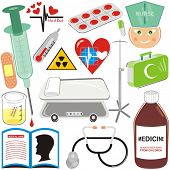Medical billing and coding online courses – Top 15 best bachelor’s degree, certificate, accredited, cheap, dental, insurance, financial aid, administrative, certified and affordable medical billing and coding online courses, programs and classes offered by good training schools, community colleges and universities
Brief Introduction – What does a medical coder do ?
A medical coder or medical records technician – is a health information professional whose main duties are to analyse clinical statements and assign standard codes using a classification system. The data produced are an integral part of health information management, and are used by local and national governments, private healthcare organizations and international agencies for various purposes, including medical and health services research, epidemiological studies, health resource allocation, case mix management, public health programming, medical billing, and public education.
For example, a medical coder may use a set of published codes on medical diagnoses and procedures, such as the International Classification of Diseases (ICD) or the Common Coding System for Healthcare Procedures (HCPCS), for reporting to the health insurance provider of the recipient of the care. The use of standard codes allows insurance providers to map equivalencies across different service providers who may use different terminologies or abbreviations in their written claims forms, and be used to justify reimbursement of fees and expenses.
The codes may cover topics related to diagnoses, procedures, pharmaceuticals or topography. The medical notes may also be divided into specialities for example cardiology, gastroenterology, nephrology, neurology , pulmonology or orthopedic care.
Basic requirements of a medical coder
A medical coder needs to have a good knowledge of medical terminology, anatomy and physiology, a basic knowledge of clinical procedures and diseases and injuries and other conditions, medical illustrations, clinical documentation (such as medical or surgical reports and patient charts), legal and ethical aspects of health information, health data standards, classification conventions, and computer- or paper-based data management, usually as obtained through formal education and/or on-the-job training.
The 15 most affordable medical billing and coding online courses and programs can be found at these colleges and universities:
Vance-Granville Community College – CBCS – Certified Billing & Coding Specialist course
Established in 1969, VGCC offers more than 40 curriculum programs , in which students work toward certificates, diplomas and degrees. Area residents and businesses can also take advantage of a variety of Continuing Education opportunities, as well as the High School Equivalency and Adult High School Diploma programs. High school students can also get a step ahead by starting their college education early with VGCC courses.
For the convenience of students, classes are scheduled during the day, at night and online. VGCC students generally find small classes that allow for personal attention from experienced instructors. At VGCC, a quality education is convenient, close to home and affordable.
Seminole State College of Florida – Medical Information Coder / Biller Technical Certificate
Take your detail-orientated skills and thrive in the pursuit of medical knowledge. This in-demand program lines you up with the technical skills needed to have a successful career in medical coding and billing. Completion of this program will provide students with 37 college credits, which can be applied to the A.S. degree, Health Information Technology.
Their industry-focused certificate programs offer excellent connections to Central Florida employers as practical, hands-on learning experiences prepare students to apply their knowledge to real-world situations. Many credits earned in certificate programs can be applied toward an Associate in Science (A.S.) or bachelor’s degree at Seminole State and graduates are prepared for immediate entry into the workforce upon certificate completion.
Ogeechee Technical College – Health Information Management Technology AAS Degree Program
The purpose of the Health Information Management Technology program is to provide educational opportunities to students that will enable them to achieve the knowledge and training necessary to obtain a Registered Health Information Technologist (RHIT) credential and succeed in the Health Information Technology field. The Health Information Management Technology program is accredited by the Commission on Accreditation for Health Informatics and Information Education (CAHIIM).
Upon graduation, students will be eligible to sit for the national certification examination. Upon successful completion of the exam, students will receive the RHIT credential through the American Health Information Management Association (AHIMA).
Oconee Fall Line Technical College
Their Medical Assisting program prepares students for employment in a variety of positions in today’s medical offices. The Medical Assisting diploma provides learning opportunities which introduce, develop, and reinforce academic and occupational knowledge, skills, and attitudes required for job acquisition, retention and advancement.
Students are accepted into the Medical Assisting diploma program fall and spring semester. A full-time student can complete this program in 4 semesters. To graduate, students must earn a minimum of 54 semester credit hours.
The Medical Assisting Diploma Program is accredited by the Commission on Accreditation of Allied Health Education Programs upon the recommendation of the Medical Assisting Education Review Board (MAERB).
Southeastern Technical College
The Healthcare Billing and Reimbursement Assistant Certificate is designed to provide instruction in medical facility reimbursement and compliance regulations. The standard curriculum for the Healthcare Billing and Reimbursement Assistant certificate program is designed for the semester system. Students may enter the program any semester. The certificate generally takes 3-4 semesters to complete. To graduate, students must earn a minimum of 18-22 credit hours.
The Program Costs (Costs are estimates and are subject to change) – Tuition/Fees: $2,774 and Books/Supplies: $750
(May 2020 )
Edgecombe Community College
The Health Information Technology curriculum provides individuals with the knowledge and skills to process, analyze, abstract, compile, maintain, manage, and report health information. Students will supervise departmental functions; classify, code, and index diagnoses and procedures; coordinate information for cost control, quality management, statistics, marketing, and planning; monitor governmental and non-governmental standards; facilitate research; and design system controls to monitor patient information security.
Graduates of the degree program may be eligible to write the national certification examination to become a Registered Health Information Technician (RHIT). Employment opportunities include hospitals, rehabilitation facilities, nursing homes, health insurance organizations, outpatient clinics, physicians’ offices, hospice, and mental health facilities.
Wallace State Community College-Hanceville
The Health Information Technology Program prepares students to become health information professionals who play a vital role in making the healthcare system work. They perform the data collection and analysis that doctors, nurses, and other healthcare professionals need to do their jobs well and are a key part of quality patient care.
The Health Information Technology Program at WSCC is accredited by the Commission on Accreditation for Health Informatics and Information Management Education (CAHIIM). Only graduates of CAHIIM-accredited programs are eligible to take the national examination to become a Registered Health Information Technician (RHIT). Wallace State Community College is one of only two CAHIIM-accredited programs in the state of Alabama.
This program is offered through online classes with the exception of clinical experiences. Prior to applying to the HIT Program, students must apply for admission to Wallace State Community College by submitting a WSCC application to the Admissions Office and meeting all the general requirements for admission to the College.
Lenoir Community College
The Medical Assisting curriculum at Lenoir prepares multi-skilled health care professionals qualified to perform administrative, clinical, and laboratory procedures. Course work includes instruction in scheduling appointments, coding and processing insurance accounts, billing, collections, medical transcription, computer operations; assisting with examinations/treatments, performing routine laboratory procedures, electrocardiography, supervised medication administration.
Graduates of CAAHEP accredited medical assisting programs may be eligible to sit for the American Association of Medical Assistants’ Certification Examination to become Certified Medical Assistants. Employment opportunities include physicians’ offices, health maintenance organizations, health departments, and hospitals. All Health Sciences and Nursing students must make grades of “A,” “B,” “C,” or “SA” on all applicable course work to progress each semester and graduate from the program.
The Medical Assisting Program is approved by the North Carolina Community College System and is accredited by the Commission on Accreditation of Allied Health Education Programs (CAAHEP) in conjunction with the Medical Assisting Education Review Board (MAERB).
The other colleges and universities that provide medical billing and coding online courses and programs are:
San Juan College
University of Alaska Fairbanks
Cowley County Community College
Central Community College
California State University-Bakersfield
Alexandria Technical & Community College
Barton County Community College
Medical coding and billing jobs and qualifications in the USA
The typical qualification for an entry-level medical coder in the United States is completion of a diploma or certificate, or, where they are offered, an associate degree. The diploma, certificate, or degree will usually always include an Internet-based and/or in-person internship, at some form of a medical office or facility, at the conclusion.
For further academic training, a baccalaureate or master’s degree in medical information technology, or a related field, can be earned by those who wish to advance to a supervisory or academic role.
A nosologist (medical coding expert) in the U.S. will usually be certified by either AHIMA or the AAPC (often both) at their highest level of certification and specialty inpatient and/or outpatient certification (pediatrics, obstetrics/gynecology, gerontology, oncology are among those offered by AHIMA and/or the AAPC), have at least 3-5 years of intermediate experience beyond entry-level certification and employment, and often holds an associate, bachelor’s, or graduate degree.
The AAPC offers the following entry-level certifications in the U.S.: Certified Professional Coder (CPC); which tests on most areas of medical coding, and also the Certified Inpatient Coder (CIC) and Certified Outpatient Coder (COC). Also in the American Health Information Management Association (AHIMA) offers the entry-level Certified Coding Associate (CCA); which is, like the AAPC’s CPC, a wide-ranging introductory test.
Some U.S. states, though decidedly not the majority, as it is a very recent trend, now mandate or at least strongly encourage certification or a degree from a college- or at the minimum, some evidence of competency beyond the record of on the job training- and/or from either the AAPC or AHIMA, to be employed.
ALSO REFER
Copper Manufacturing Companies in the USA
Commercial Audio Video Companies in Ohio
Biometric Software Companies in the USA
Food Delivery Services in West Virginia USA
Real Estate Development Companies in Dallas Texas
Calcium Supplements for Kids Teeth
Nursing Homes in San Francisco California
Real Estate Development Companies in Miami


